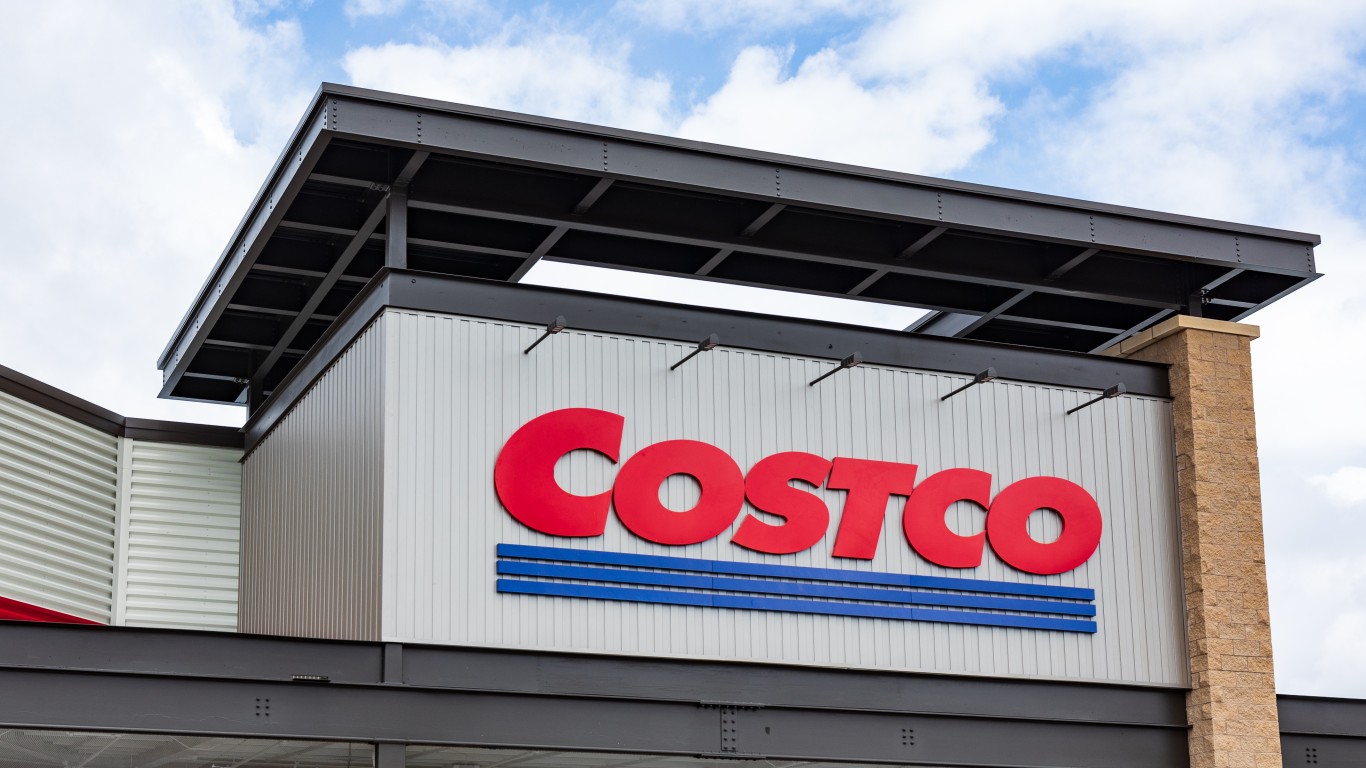
24/7 Wall St. has included some the key highlights from the earnings report, as well as what some analysts are saying after the fact.
The big-box retailer of electronics gear reported adjusted diluted earnings per share (EPS) of $0.57 and $8.53 billion in revenues. In the same period a year ago, Best Buy reported EPS of $0.49 on revenue of $8.53 billion. Second-quarter results also compare to the Thomson Reuters consensus estimates for EPS of $0.43 and $8.4 billion in revenue.
Enterprise level same-store sales rose 0.8% year over year in the quarter, after rising by 3.8% in the second quarter last year. In the United States, same-store sales rose by the same amount. Online comparable sales rose nearly 24%.
Domestic online sales of $835 million in the quarter accounted for 10.6% of revenue.
Credit Suisse remains concerned about Best Buy and has a Neutral rating, but the firm still raised its price target to $36 from $31. According to Credit Suisse:
Where we still struggle: (1) Q2 is a small quarter, and there is over 65% of the year remaining from a profit perspective; (2) we question whether this is as good as it gets for certain categories, like home theater, and also market share gain-wise. While Best Buy continues to elevate the customer experience, the company has also benefited from some robust product trends; and (3) Domestic EBIT was down (dollar and margin), as gross profit dollars declined (lowest level since 2Q14). For 1H, EBIT grew 5%, yet is expected to be up low single digits for the year, implying minimal growth in 2H. That will need to prove conservative.
Merrill Lynch maintained its Underperform rating, but it did raise its price objective to $29 from $25. The brokerage firm noted that earnings visibility remains low given weak industry trends, which include weak PC sales, TV deflation and the possibility of a lackluster iPhone 7 release. Furthermore, with Best Buy already reaching $1.25 billion of its annualized cost savings out of a target of $1.4 billion, Merrill Lynch sees limited room for additional cost takeout.
S&P Global reiterated a Hold rating and raised its price target to $39 from $34. The firm also upped its EPS estimates to $3.15 (up $0.15) in 2016 and $2.97 (up $0.14) in 2017. Looking forward, the firm also believes that ongoing share buybacks under a $1 billion authorization should be accretive to EPS.
A few other analysts weighed in on Best Buy after the report:
- Deutsche Bank has a Hold rating and raised its price target to $41 from $32.
- Goldman Sachs has a Neutral rating and raised price target to $39 from $36.
- JPMorgan raised its price target to $35 from $30.
- Morgan Stanley has an Equal Weight rating and raised price target to $35 from $28.
- Raymond James has a Strong Buy rating and raised price target to $45 from $38.
- RBC has a Sector Perform rating and raised price target to $42 from $36.
- SunTrust Robinson raised its price target to $45 from $39.
- UBS has a Neutral rating and raised its price target to $38 from $33.
Shares of Best Buy were trading up 2% at $40.00 on Wednesday, with a consensus analyst price target of $35.18 and a 52-week trading range of $25.31 to $40.58.
It’s Your Money, Your Future—Own It (sponsor)
Are you ahead, or behind on retirement? For families with more than $500,000 saved for retirement, finding a financial advisor who puts your interest first can be the difference, and today it’s easier than ever. SmartAsset’s free tool matches you with up to three fiduciary financial advisors who serve your area in minutes. Each advisor has been carefully vetted and must act in your best interests. Start your search now.
If you’ve saved and built a substantial nest egg for you and your family, don’t delay; get started right here and help your retirement dreams become a retirement reality.
Thank you for reading! Have some feedback for us?
Contact the 24/7 Wall St. editorial team.



